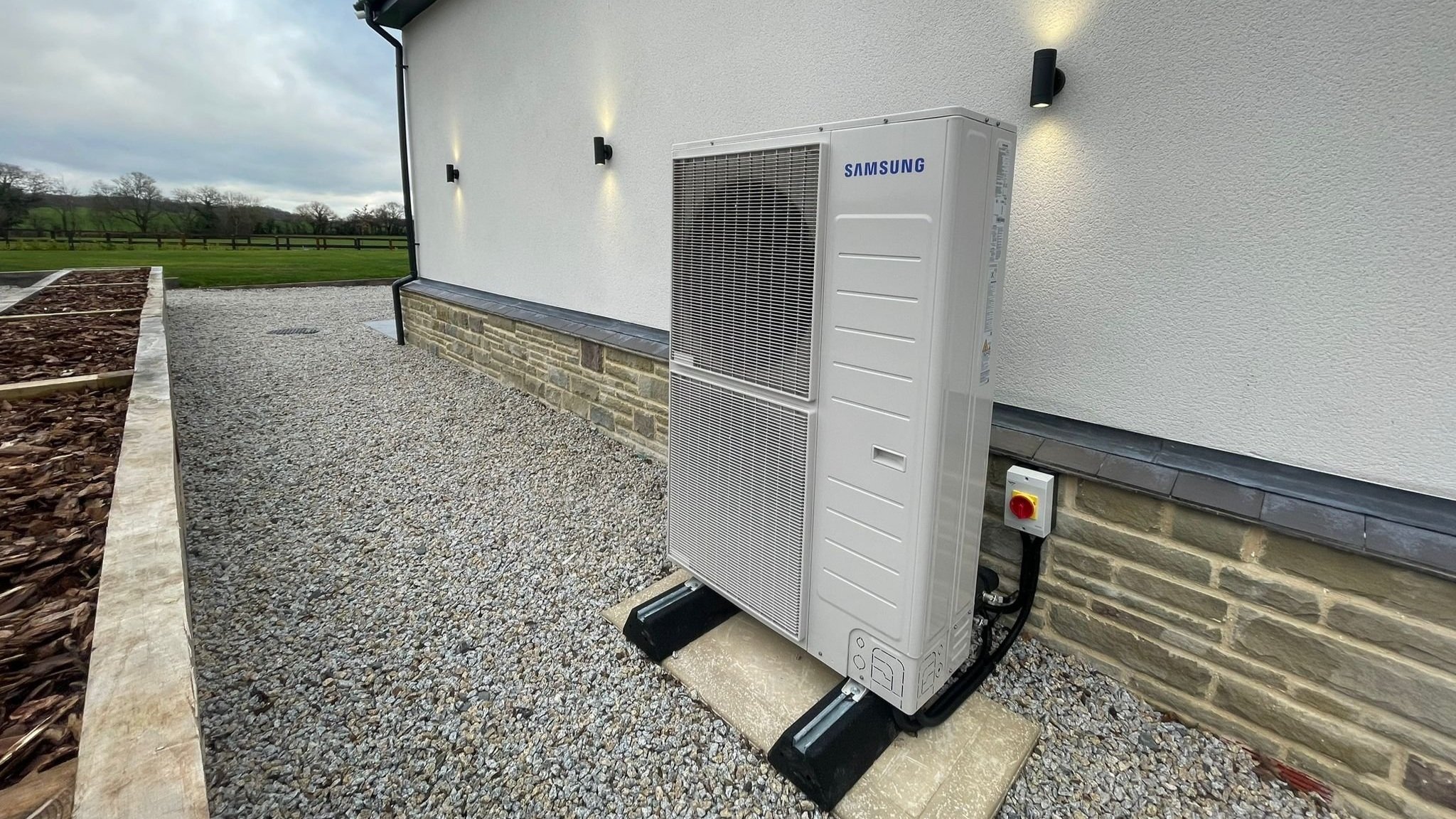If you’re a heat pump installer or homeowner, who is looking to install a heat pump, there a few things you should know regarding sound assessments before installing a heat pump at your home. In this blog post, we’ll discuss the purpose of a sound assessment, best practice for ensuring compliance, and the possibility of rules being relaxed.
What is the purpose of the sound assessment?
Sound assessments aim to regulate and limit the noise emitted by heat pumps to avoid disturbing neighbouring properties. In the UK, the Microgeneration Certification Scheme (MCS) sets the standards for renewable energy technologies, including heat pumps. These standards include noise level limits and focus on ensuring that heat pumps meet certain noise emission levels at specified distances during operation. As it stands, the sound pressure level of a heat pump, at normal operating speeds, should be equal to or lower than 42 dB (A).
Considerations for the installation
When installing a heat pump, there are 3 main considerations that installers should keep in mind:
The distance of the heat pump to the property boundary - The unit should be installed at least 1 meter away from the property boundary. This minimises the transmission of noise to adjacent properties and reduces any potential disturbances to neighbours.
Are there any barriers near the heat pump - If the unit is obscured (e.g. by a brick wall or fence), this can reduce the sound pressure levels that reach neighbouring properties.
The number of surfaces surrounding the heat pump - Sound pressure levels increase with the number of reflective surfaces that surround the heat pump. For example, if all other factors are the same, an air source heat pump with three reflective surfaces will produce higher sound levels than one with two reflective surfaces. An air source heat pump with more than three reflective surfaces will not meet MCS planning standards and will therefore fail a sound assessment.
Number of surfaces surrounding a heat pump
How do we carryout a sound assessment?
If you choose to purchase a heat pump through Alto Energy, we carry out the sound assessment for the project. Once we’ve received photos and property plans of the building, we will choose a suitable location for the heat pump, ensuring that it meets the criteria put forward by MCS. If the heat pump is not obscured from neighbouring properties, we might recommend installing an enclosure to reduce the noise of the heat pump. If the heat pump does not pass the 42dB (A) sound assessment, the property owner will need to apply for planning permission.
Are sound assessments rules likely to be relaxed?
A recent independent study, commissioned by The Department for Energy Security and Net Zero, reviewed evidence on noise emissions and whether current guidance and planning regulations are fit for purpose for the larger-scale deployment of air source heat pumps.
The research reported:
The minority of consumers in the study were concerned with the noise emissions from air source heat pumps
Complaints of noise complaints are still fairly rare
Complaints that arose were due to poor quality installations, including location and proximity factors
The report of low noise complaints aligns with our expectations, and we welcome positive feedback like this. Additionally, we have consistently emphasised the significance of high-quality installations, emphasising how subpar workmanship can adversely affect the noise output of air source heat pumps.
The study also discussed concerns towards current rules, which are overly strict in certain instances and too lenient in others. While the study suggests reviewing permitted development guidance and regulations to improve the noise assessment rules and allow more flexibility in installation locations, the final decision will come down to MCS.
Heat Pump Enquiries
Are you a homeowner considering replacing your fossil fuel heating system with a clean and efficient heat pump? Or are you a heating engineer looking to modernise your business and start offering heat pumps to your customers? If so, get in touch to find out how we could help.



